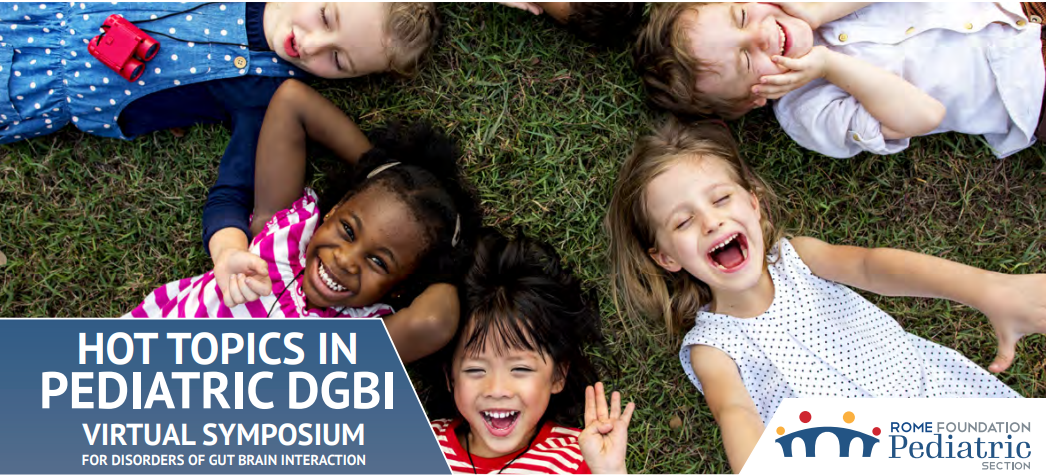 Rome Campus
Rome Campus
2 Courses

Pediatric Education
2023 Pediatric Symposium: Hot Topics in Pediatric DGBI
Learning Objectives:
● Using a case-based approach, to review evidence-based recommendations for the evaluation and management of children with DGBI
● To learn more about new and emerging DGBI diagnoses
● To feel more confident in handling controversial medical issues
• Test or not Test: Endoscopy, Imaging, Breath Testing, Impedance, Motility Testing
• Dietary Management: Chasing the Z score, Enteral Tubes, Specialized Diets
• Therapies: Behavioral / neuromodulators / neurostimulation / alternative
• Too Many Cooks in the Kitchen: The Role of the Gastroenterologist in Overlapping Pain Conditions and other diseases (MALS, MCAS, SFN,EDS, POTS, etc)
● From a multidisciplinary panel, to learn biopsychosocial management methods
Pediatric Education
Rome Foundation Virtual Pediatric Symposium - 0 CE Credits
Learn how to manage pediatric Disorders of Gut-Brain Interaction: newborns through adolescents. This symposium will teach the process of evaluation, diagnosis and treatment. In addition we will bring in the complex nature of including the role of the family in management of pediatric patients with DGBI.